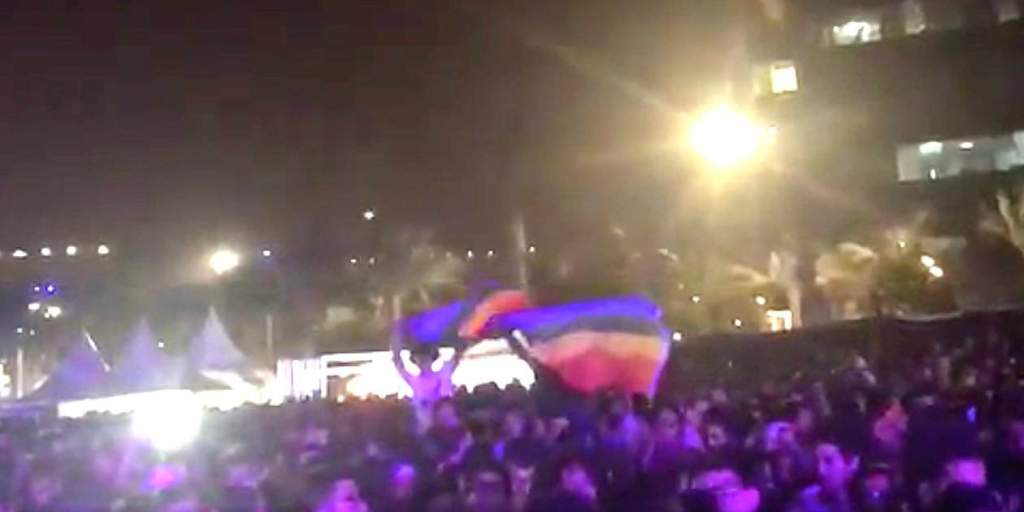Remember back to 2017 and the night seven people were arrested in Egypt after raising a rainbow flag in support of LGBTQ rights at a Cairo concert put on by the Lebanese band Mashrou' Leila. The band's singer is openly gay. One of those brave people raising the flag was Sarah Hegazi. Last Saturday, Hegazi took her own life in Canada.
The events that took place between the flag-raising seen in the photo below and her death last weekend are laid out by the New York Times in a revealing story of Egypt's oppression of LGBTQ people that make Hegazi's actions all the more heroic. Hegazi's story went viral this week after her death was reported accompanied, by the hashtag #RaiseTheFlagForSarah.

Shortly after she raised the flag at the concert she became a target on social media, and was attacked as well on Egyptian news media.
The NYT reports: “Days later, armed security officials arrived at Ms. Hegazi's home and took her to a detention center run by the National Security Agency, a feared arm of Mr. el-Sisi's security apparatus. Officers questioned her religious beliefs and asked if she was a virgin. She was blindfolded and taken to a foul-smelling interrogation room where she could hear people groaning with pain. A piece of cloth was stuffed into her mouth. She was tortured with electric shocks, she later said in interviews.”
Hegazi was hauled to the police station where she was molested by other female prisoners at the urging of police, then to a prison where she was put in solitary confinement as dozens of other LGBTQ were arrested and sent to prison terms amid a broader crackdown.
CNN reports: “During interrogation at the state security prosecution, which usually handles terrorism and high profile political cases, Hegazi would clutch her lawyers' arms and beg them not to let her go back to detention, her lawyer and friend Mostafa Fouad told CNN. In hours of questioning, police probed into the details of her life, she later wrote. They asked her why she took off the Islamic headscarf, which she had previously donned, and if she was a virgin.”
She was ultimately granted bail three months later and fired from her job, she fled to Canada and was granted asylum. Hegazi's mother died shortly after she fled but the young activist was unable to return to Egypt.
Hegazi began suffering a mental breakdown and PTSD which ultimately led to her suicide.
She left a note, which read, in part: “The experience has been harsh and I'm too weak to resist. To the world, You've been greatly cruel, but I forgive.”




